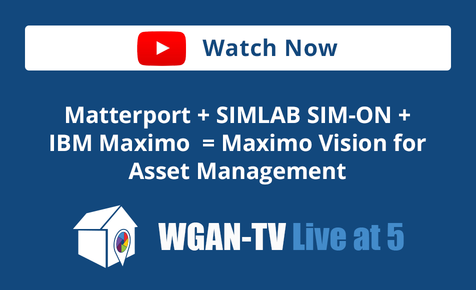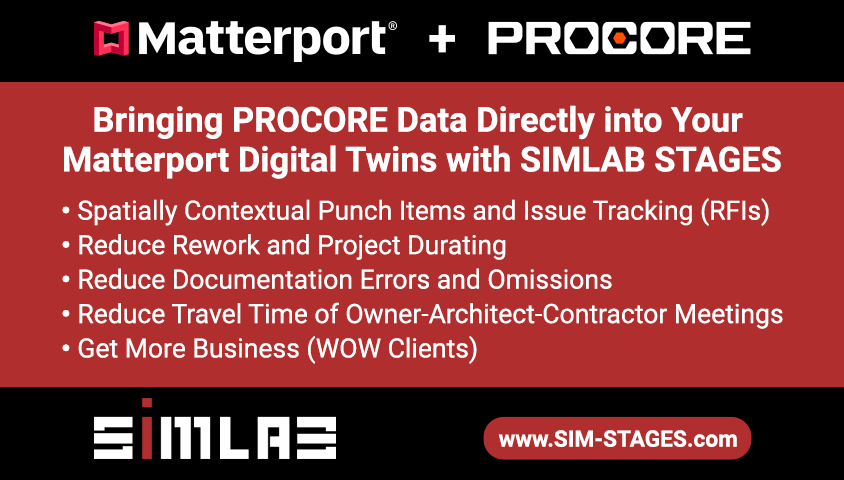10 Scanning tips for new Matterport Users5495
Pages:
1

|
JonJ private msg quote post Address this user | |
| Hi All, I posted these 10 scanning tips in another thread and @DanSmigrod asked if I could create a dedicated thread. So, here it is. I would love to hear additional scanning tips that MSPs can implement to produce higher quality spaces, reduce scanning times, improve the end user experience or all of the above. Here are 10 from the aforementioned thread. Here are 10 tips that may or may not apply directly to your first scan, but I think they are good to know for anyone starting out with Matterport or for anyone else that might not be completely happy with the way their scans have been turning out. Please keep in mind, that these are just some best practice that I have used, but by no means are they hard fast rules that must be followed. 1) Set your camera height so that the top of the camera is between 55 inches and 60 inches. This will give good proportions for the user when navigating the space in first person view and will produce better snap shots (than a higher camera angle) if you choose to take them. 2) When starting your first scan, orient your camera so that the handle is pointing away from the front door (assumes the front door is on the lowest level). This will orient the mini model in the capture app so that the front of the house is on the bottom of the screen. This will make it easier for you to associate the orientation of the model to the real space. 3) Start on the lowest level first and work your way up. 4) Stairs leading from one level to another should be associated with the lower level, but do not switch floors in the capture app until you have a few (3-5) scans on the next level up. Once you are at the top of the stairs, instead of switching to floor 2, scan 3-5 more spots on the second floor and then move those 3-5 scan points to the second floor. This will ensure you always have alignment when transitioning from floor to floor. 5) If possible, scan spaces that are located directly behind mirrors (especially large mirrors) before you scan the space with the mirror. An example of this would be a bathroom with a large mirror. You will want to scan the space behind the bathroom mirror before scanning the bathroom. This will help with alignment. 6) When scanning stairs, raise your tripod up, so that the camera is between 55 inches and 60 inches above the step that it is directly over. Otherwise, when navigating up the stairs, it will give the appearance that the view is 6-8 inches lower than before. 7) Scan interior spaces before scanning exterior spaces. It is a good idea to set the expectations of your clients and make sure that they understand that it may not be possible to capture exterior spaces. However, you don't really have too many good reasons why you should not be able to capture the interior. So, be sure to get the interior done before moving outside. 8) Don't be afraid to lower your tripod to minimize the blind spot under the camera. This is particularly helpful in tight spaces or if you want to capture the side of furniture that is located close to a wall. 9) When scanning, the camera is only capturing information when it is stationary. So, when placing the camera, point the handle of the camera in the direction you will be going to hide. If there are no reflective surfaces around, this will give you an additional 25-30 seconds to hide before the camera sees you. This also happens to give you just enough time to move the camera, once it is done scanning, to the next position before it is ready to scan again. Remember, the camera does not need to be perfectly level in order to align properly. It has a 15 degree tolerance, so be sure to use that in order to maximize your efficiency. 10) When marking your model, be sure to mark both sides of the windows if you scanned on both sides. This will produce a more pleasing dollhouse view with solid windows. Otherwise, it looks like some of the windows were broken out in the dollhouse view if they are not marked. Hope that helps! Jon J |
||
| Post 1 • IP flag post | ||

Frisco, Texas |
Metroplex360 private msg quote post Address this user | |
| These are all excellent tips. I really enjoyed #5, and will keep this in mind. I would like to add to #9 that when you start scanning - the camera captures the first image AFTER the first turn, so one you are comfortable operating the camera and spacially aware of yourself and the camera, you can start the scan while walking away to the left of the camera. I do this to impress ... my camera. |
||
| Post 2 • IP flag post | ||
 WGAN Forum WGAN ForumFounder & WGAN-TV Podcast Host Atlanta, Georgia |
DanSmigrod private msg quote post Address this user | |
| @JonJ Thanks for posting. @Metroplex360 Too funny. Dan |
||
| Post 3 • IP flag post | ||

|
Highlands3D private msg quote post Address this user | |
| @JonJ Just wanted to take the time to thank you for your helpful tips! I was familiar with some of these techniques but I recently employed tips 1, 2 and 5 and they've really improved the quality and appearance of my tours. The first person view is much improved as a result of the lowered tripod height. As I don't offer photography services I also lower my tripod even further to a height of 1 metre (approx. 120 to top of camera) and this produces some great 2D snapshots with my MP pro camera. Thanks again |
||
| Post 4 • IP flag post | ||

|
Gerhard private msg quote post Address this user | |
| Matterport sent me an unofficial capture guide a year ago. I will see if I still have it and email it to Dan. Had some cool tips. | ||
| Post 5 • IP flag post | ||
Pages:
1This topic is archived. Start new topic?
















